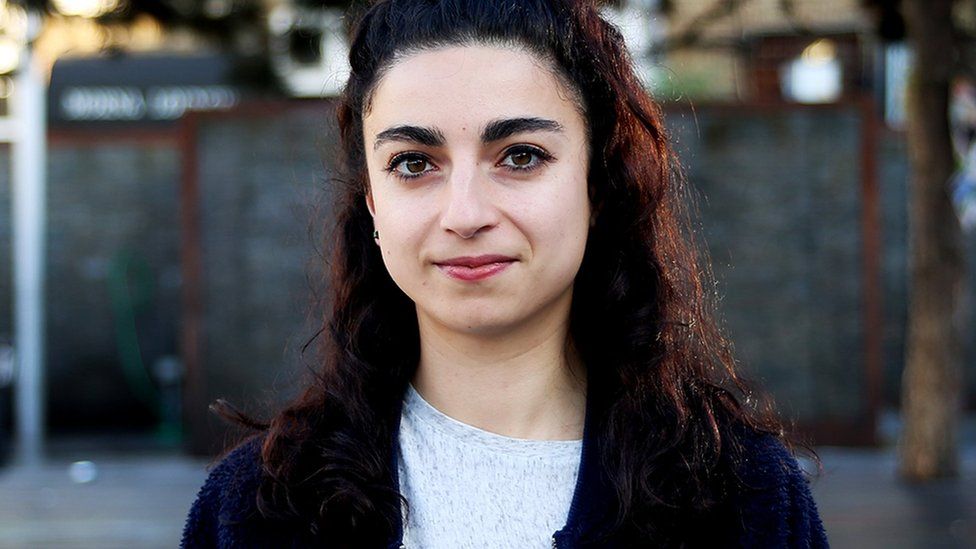Shiva Feshareki: The innovator who doesn't try to be original
- Published

In 2004, at the age of 17, Shiva Feshareki won the BBC Proms/Guardian Young Composer of the Year with her first composition called In The Attic.
Mixing acoustic instrumentation with live sampling on turntables has now earned her an honour for innovation at this year's British Composer Awards.
We've been speaking to her about how she works.
What was your reaction to winning the innovation award?
I was incredibly excited, really surprised and couldn't quite believe it - it's amazing.
What does innovation mean to you?
All composers are innovative in their individual way. In my work, I'm always trying to reshape and rethink what I do as an artist and to try to have a different perspective than the one I have at the moment.
I'm trying to broaden my perspective so I can understand how music has a broader relationship to other aspects of life, so, because I have this curiosity, that's where the innovation comes from.
Working within electronic music and classical music, you must have so many influences, is it hard to stay original?
I never try to be original. I just always have a curiosity for understanding things I don't currently understand, so I'm always trying to dip my toes in as many genres and scenes as possible.
I've always had a broad taste in music but I also listened to things that were going on at the time. Now it's much easier with the internet.
When did the turntables come into it? Were you a fan of classic hip hop DJs like Grandmaster Flash, DJ Kool Herc and Public Enemy's Terminator X?
I get asked that a lot, but I didn't really think about it that much. I was going to house parties and there were really incredible DJs and I just had this immediate interest in turntables - not necessarily in the DJ form but in the physicality of the decks.
I want to explore what other things you could do with them and how you could manipulate sound and I got really into that in my teens.
Is there any snobbery in the classical world about using turntables, existing sounds and music to make new things?
Gosh, if there is then they're going to be snobby towards me because it's a lot to do with my work. I do live sampling and manipulation. I don't know if there is snobbery - I'm not going to get involved in that - and if there isn't and there's openness then that's cool too, but I just continue what I feel is true to me in that sense.
Have you noticed more younger people getting into what you're doing with music?
Probably just because of the way I work I've got quite a varied audience and I've noticed a lot of change in the scenes. One thing that's fascinating is seeing how many people have access to experimental music. I get messages on my Facebook page from people in the Philippines or Nigeria, so it's really cool to see that.
The interest has just opened up so many doors for the sharing of ideas and has created so many cultures and subcultures, and the access to so many different types of music for anyone that is curious, so it's brilliant.
Composer and turntablist Shiva Feshareki shares advice for young women
How important is the visual aspect to what you are doing?
Anything to do with movement is really important to my music, so I'm really focused on the physicality of sounds and of how they interact with other phenomena such as movement, light, space, structures and architecture.
Anything to do with physical movement is very much linked to my music, because I'm trying to see music, and because there's no such thing as thunder without lightning, there's always going to be that relationship.
It can make for a challenging, even unsettling, experience - are you worried about audiences being put off by what they don't quite understand?
Yeah but also there's no point in putting people down. I feel like everybody has the want to be challenged and ask questions and understand and be curious, so I've noticed that definitely with my work people are very curious and want to be challenged in that way.
Follow us on Facebook, on Twitter @BBCNewsEnts, or on Instagram at bbcnewsents. If you have a story suggestion email entertainment.news@bbc.co.uk.